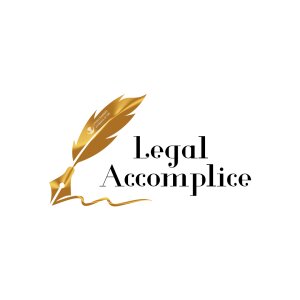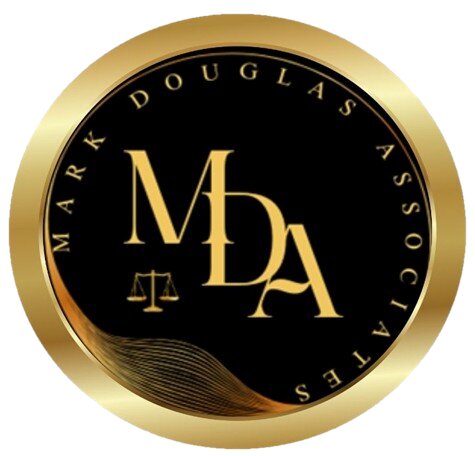Best Nonprofit & Charitable Organizations Lawyers in Montego Bay
Share your needs with us, get contacted by law firms.
Free. Takes 2 min.
List of the best lawyers in Montego Bay, Jamaica
About Nonprofit & Charitable Organizations Law in Montego Bay, Jamaica
Nonprofit and charitable organizations in Montego Bay, Jamaica, play a crucial role in addressing social, cultural, and economic needs. These organizations are typically structured to work for the public good without the intention of distributing profits to members. The legal framework governing nonprofits in Jamaica includes specific regulations concerning formation, operation, and dissolution, ensuring accountability and transparency in their activities. Organizations must adhere to guidelines set forth by the government to maintain their nonprofit status and enjoy associated benefits, such as tax exemptions.
Why You May Need a Lawyer
Legal assistance is often necessary for nonprofits to navigate the complexities of both establishing and maintaining an organization. Some common situations where legal help may be required include:
- Formation and Registration: Ensuring the organization is properly established and compliant with legal requirements.
- Compliance: Advising on laws and regulations regarding charitable activities and tax obligations.
- Governance: Assisting with the creation and amendment of bylaws and governance policies.
- Contractual Matters: Drafting and reviewing contracts or agreements with third parties.
- Dispute Resolution: Handling any conflicts involving the organization or its stakeholders.
- Dissolution: Guiding on the proper legal process to dissolve the organization if necessary.
Local Laws Overview
Nonprofit organizations in Montego Bay must comply with various local laws, which include:
- Registration: Nonprofits are required to register with the Department of Cooperatives and Friendly Societies or other relevant bodies to gain legal recognition.
- Tax Obligations: While nonprofits are often tax-exempt, they must comply with specific tax regulations to maintain this status.
- Reporting Requirements: Organizations need to submit annual financial reports to ensure transparency and accountability.
- Charitable Benefit Regulation: Activities must align with the charitable purpose specified during registration.
Frequently Asked Questions
What is the difference between a nonprofit and a charity in Jamaica?
In Jamaica, a nonprofit is an organization that operates for public or mutual benefits other than generating profit. A charity, specifically, is a type of nonprofit focused on activities that provide public benefit, such as education, relief of poverty, or health promotion.
How do I start a nonprofit organization in Montego Bay?
To start a nonprofit, you will need to draft your organization's constitution, register with the appropriate authorities, and fulfill any specific requirements related to your intended charitable activities.
Are there any tax benefits for nonprofits in Jamaica?
Yes, registered nonprofit organizations in Jamaica may be eligible for various tax benefits, including exemptions from income tax and General Consumption Tax (GCT), provided they remain compliant with all regulatory obligations.
Can a nonprofit organization in Jamaica make a profit?
Nonprofits can generate revenue, but profits must be reinvested into the organization's mission rather than distributed to members or directors.
What are the governance requirements for nonprofits in Montego Bay?
Nonprofits are typically required to have a governing board and maintain specific governance structures such as regular board meetings, minute-keeping, and adherence to agreed bylaws.
How can a nonprofit maintain compliance with local laws?
Regularly reviewing and understanding relevant legislation, preparing timely financial reports, and consulting with legal professionals as needed are key practices to maintain compliance.
What happens if a nonprofit fails to comply with legal requirements?
Failure to comply can lead to penalties, including fines, loss of tax-exempt status, or even dissolution of the organization.
Can foreign entities establish nonprofits in Jamaica?
Yes, foreign entities can establish nonprofits, but they must comply with Jamaican laws and regulations for registration and operation.
What roles do board members play in a nonprofit?
Board members are responsible for the overall governance of the organization, setting strategic direction, ensuring accountability, and compliance with legal and ethical standards.
Is it necessary for a nonprofit to have a physical office in Montego Bay?
While not legally required, having a physical location can be beneficial for operations, providing transparency, and establishing a local presence to better serve the community.
Additional Resources
For further assistance, consider reaching out to the following resources:
- Department of Cooperatives and Friendly Societies: Offers information and support for registering and operating nonprofits.
- Tax Administration Jamaica (TAJ): Provides guidance on tax compliance and exemptions for nonprofit entities.
- Jamaica Social Investment Fund (JSIF): Supports community-based projects and offers potential collaborative opportunities.
- Local legal firms in Montego Bay: Experienced in nonprofit and charitable organization law.
Next Steps
If you are seeking legal assistance for your nonprofit or charitable organization in Montego Bay, consider the following steps:
- Identify your specific legal needs concerning your nonprofit activities.
- Research and select a qualified lawyer or law firm experienced in nonprofit law.
- Prepare all the necessary documents and a list of questions or concerns to discuss with your lawyer.
- Set up a consultation to determine the scope of services needed and discuss legal strategies.
- Continually monitor compliance and legal obligations with the guidance of your legal advisor.
Lawzana helps you find the best lawyers and law firms in Montego Bay through a curated and pre-screened list of qualified legal professionals. Our platform offers rankings and detailed profiles of attorneys and law firms, allowing you to compare based on practice areas, including Nonprofit & Charitable Organizations, experience, and client feedback.
Each profile includes a description of the firm's areas of practice, client reviews, team members and partners, year of establishment, spoken languages, office locations, contact information, social media presence, and any published articles or resources. Most firms on our platform speak English and are experienced in both local and international legal matters.
Get a quote from top-rated law firms in Montego Bay, Jamaica — quickly, securely, and without unnecessary hassle.
Disclaimer:
The information provided on this page is for general informational purposes only and does not constitute legal advice. While we strive to ensure the accuracy and relevance of the content, legal information may change over time, and interpretations of the law can vary. You should always consult with a qualified legal professional for advice specific to your situation.
We disclaim all liability for actions taken or not taken based on the content of this page. If you believe any information is incorrect or outdated, please contact us, and we will review and update it where appropriate.










